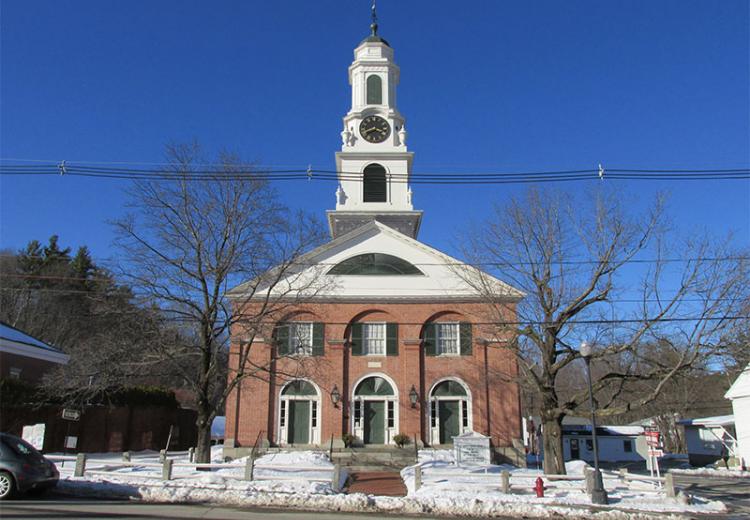Dramatic and Theatrical Aspects in Thornton Wilder’s Our Town

Unitarian Church, Peterborough, New Hampshire. It was built in 1825 based on a handbook design published by architect Asher Benjamin (1773–1845) and is referenced in Thornton Wilder's Our Town.
"The unencumbered stage encourages the truth operative in everyone. The less seen, the more heard. The eye is the enemy of the ear in real drama."
—Thornton Wilder
For almost a century, Thornton Wilder’s Our Town has provided audiences with an exceptionally moving theatrical experience despite its minimal sets and only a handful of props—indeed, the play begins with the Stage Manager on an empty stage, dragging a few chairs and tables into their places while the theater audience is still taking their seats. The power of this play emanates from its simplicity: allusions to spectacle (what the audience sees and hears) without distracting production; elegant characterization and character development; and essential human conflicts and contrasts that animate the stage.
The activities in this lesson require students to be active observers, sensitive to the playwright’s subtle use of these dramatic and theatrical devices to shape his drama. Students will focus on the sights and sounds of the play to discover their impact on mood and theme; they will scrutinize Wilder’s character development to understand the many individual dramas that constitute the overarching drama; and they will investigate conflicts and contrasts whose resolutions or lack thereof have made the play meaningful to so many readers and audiences.
Guiding Questions
How did playwright Thornton Wilder use certain dramatic and theatrical devices to effect meaning in the play, "Our Town?"
Learning Objectives
Explore the impact of sights and sounds on the play’s moods and themes.
Trace the development of key characters.
Track the development and resolution of dramatic conflicts.
